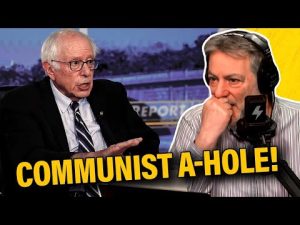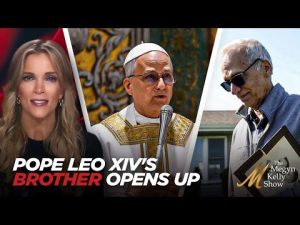The Catholic Church’s new leader, Pope Leo XIV, is making waves as the first American pontiff. His brother in Chicago shared surprising details about the pope’s down-to-earth habits, like playing Wordle and binge-watching the drama Conclave just days before his election. This relatable side of the pope has conservatives cheering for a leader who understands everyday people.
Leo XIV, born Robert Prevost, grew up in a blue-collar Chicago family. The Augustinian friar and Villanova alum is known for his humility and quiet diplomacy. His election breaks centuries of tradition, putting an American patriot at the head of the global church—a win for those tired of distant, bureaucratic leadership.
The pope’s brother revealed he stayed grounded during the tense conclave, unwinding with word games and a TV show about papal elections. Conservatives see this as proof Leo XIV isn’t another elitist leader but a man of the people. In a world where faith is under attack, his simplicity sends a powerful message: tradition and common sense still matter.
Critics worry his American roots might dilute the Vatican’s global focus, but supporters argue it’s time for fresh leadership. Leo XIV has vowed to continue Pope Francis’ outreach, but insiders expect a stronger emphasis on traditional values. This could mean pushing back against progressive factions trying to rewrite church teachings.
His first speech called for unity, urging the church to “build bridges” and welcome all. While liberals might see this as a nod to inclusivity, conservatives hear a defense of timeless truths. The pope’s focus on cooperation, not compromise, aligns with the right’s fight against cultural division.
The election of an American pope marks a turning point for the church. With secularism rising, Leo XIV’s mix of humility and firm faith offers hope for believers clinging to tradition. His ability to connect with ordinary Catholics could revitalize a church struggling to stay relevant.
As the world watches, conservatives see Leo XIV as a bulwark against radical change. His background as a scholar and pastor suggests he’ll prioritize spiritual renewal over political correctness. In an era of chaos, the church might finally have a leader who puts God above globalist agendas.
The road ahead won’t be easy, but Pope Leo XIV’s unpretentious style and love for tradition inspire confidence. For millions of faithful Americans, this is more than a historic moment—it’s a sign that common sense and faith can still triumph in a broken world.







